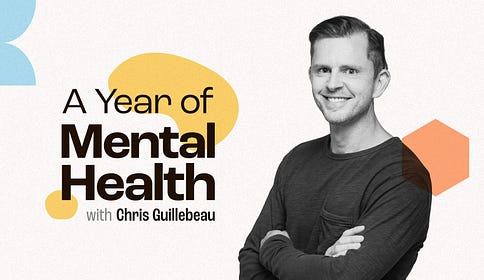If any of these scenarios sound familiar, you’re not alone. For many people, especially anyone who identifies with neurodivergence, the struggle with small tasks can be a constant and frustrating part of life. This post is the first in a series exploring why small tasks often feel disproportionately challenging and what we can do about it. I’ve said a couple of times that traditional productivity advice is unhelpful (and potentially even detrimental) for lots of people. But why? If you look at questions like “why is it hard to do small things?” through the lens of “management thinking” or productivity, you tend to end up with a specific set of answers. This perspective often emphasizes discipline, willpower, and routine. Suggestions like “just do it,” “prioritize,” or “block out your time” are common. While these lessons can be effective for some people, they often fall short for others. The perspective assumes a level of executive function that may not be present. For someone with ADHD, for example, the challenge is not a lack of desire but the inability to get started due to impaired executive functioning. Or to take time blocking: this method requires a high level of skill and consistency—and many people struggle with time perception or time blindness, making it difficult to adhere to a strict schedule. To get better at these things, you should first work on improving executive functions. Executive Functions 101Here are some of the most common: Organization: the ability to arrange thoughts, tasks, and physical spaces systematically and orderly Task Initiation: the ability to begin a task promptly without procrastination Working Memory: the ability to hold and manipulate information in the mind over short periods Impulse Control: the ability to resist immediate urges in favor of more appropriate or beneficial actions Focus: the ability to concentrate on a task without becoming distracted Emotional Regulation: the ability to manage and respond to emotional experiences healthily and adaptively For each of these functions, you might be able to imagine times where you’ve struggled (and it’s caused some type of problem), as well as times where you’ve excelled. We’ll look at some specific examples throughout the series. Coming Up in the SeriesIn the next few posts (there might be a break with some other content here-and-there), I’ll share some tips on HOW you can improve executive functions, with an emphasis on how this affects some really important parts of daily life. For example: —MONEY (lots of people think they’re “bad at money” but really it’s an executive function deficit or limiting belief) —TIME (it’s not only time blindness; the general perception of time and relation to it is a huge issue for many of us) —RELATIONSHIPS (executive function deficits can impact all of our relationships, including those with friends and colleagues) So in short, if you want to get better at life—get better at executive functions! I’ll share more with you soon. Conversation Starters
P.S. All posts on 🌻 A Year of Mental Health are now free! I very much appreciate our paid subscribers who make this possible, as well as anyone who “likes” each post (click the button at the top or bottom) and shares it with others. You’re currently a free subscriber to 🌻 A Year of Mental Health. For the full experience, consider upgrading! |
Monday, July 1, 2024
Why Is It So Hard to Do Small Things?
Subscribe to:
Post Comments (Atom)
Have You Ever…
No, seriously - I am curious. ͏ ͏ ͏ ͏ ͏ ͏ ͏ ͏ ͏ ͏ ͏ ͏ ͏ ͏ ͏ ͏ ͏ ͏ ͏ ͏ ͏ ͏ ͏ ͏ ͏ ͏ ͏ ͏ ͏ ͏ ͏ ͏ ͏ ͏ ͏ ͏ ͏ ...
-
insidecroydon posted: " Become a Patron! What's on inside Croydon: Click here for the latest events listing...




No comments:
Post a Comment